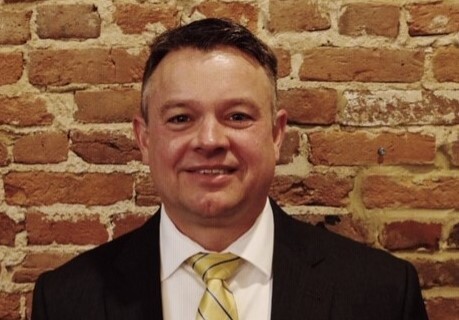BENTON – Thirteen asbestos plaintiffs claim a North Carolina bankruptcy judge had no right to ask their lawyers to fill out questionnaires for Georgia-Pacific to use in estimating its liabilities.
Their counsel Stephen Williams of Belleville, a former magistrate judge in district court in Benton, filed for an injunction against Bestwall, a Georgia-Pacific entity, in U.S. district court on June 21.
Former U.S. District judge Patrick Murphy, who also had served at the Southern District of Illinois, joined the plaintiffs’ team on June 22.
“A federal court must have personal jurisdiction over an individual, or be authorized by statute or court rule, to order compliance with a discovery request,” Williams wrote.
In his pleadings, he claims Georgia-Pacific agreed to settle claims of six plaintiffs but hasn’t paid.
Attorney John Steffan of St. Louis asbestos firm Maune Raichle also represents the plaintiffs.
The court clerk randomly assigned the action to District Judge Staci Yandle.
In 2017, Georgia-Pacific created two entities, attaching its assets to New GP and its liabilities to Bestwall.
Bestwall filed a petition before U.S. Bankruptcy Judge Laura Beyer in Charlotte and moved for an estimation hearing.
Plaintiff firms opposed it, claiming Bestwall should estimate future liabilities on the basis of past settlements.
Bestwall claimed a practice of alleging one set of exposures in court and another in confidential trust proceedings inflated Georgia-Pacific’s settlements.
The company relied on previous discovery of eight double dippers from a small sample in the bankruptcy of Garlock Sealing Technologies.
Beyer granted estimation.
Last year, Bestwall moved to issue about 15,000 questionnaires to plaintiff firms and serve subpoenas for records of nine asbestos trusts.
At a hearing, Beyer said questionnaires have been used in mass tort bankruptcies across the country over the course of many years without subpoenas.
She said issuing subpoenas was neither practical nor feasible, and she questioned whether counsel really wanted them served directly on claimants.
She granted discovery in March, and the firms petitioned in district court for leave to appeal in April.
District Judge Robert Conrad denied leave to appeal in May.
“As a general rule, discovery orders are not final decisions subject to immediate appeal,” Conrad wrote.
He wrote that if he overturned Beyer’s order, Bestwall would seek to gather the same information through different means.
Meanwhile the trusts, as Delaware corporations, moved to quash the subpoenas in Delaware district court.
Seventy-six firms joined the motion on behalf of more than 10,000 clients.
District Judge Colm Connolly granted it on June 1, without prejudice.
He found Bestwall could issue narrower subpoenas with protections set forth in a case involving Honeywell and Ford.
He wrote that trusts aren’t clearinghouses for entities wishing to obtain confidential information for commercial purposes.
On June 9, Bestwall advised Beyer that it would appropriately narrow the subpoenas in response to Connolly’s order.
On June 17, Connolly clarified that any subpoena must limit production to a random sample of no more than ten percent.
The action spread to the Southern District of Illinois when Williams sued Bestwall there.
Williams requested a stay on a July 26 deadline for responses and a declaration that the questionnaires violate due process rights.
He wrote that New GP inherited more than $22 billion in assets and Bestwall received less than $200 million.
He wrote that plaintiffs are not permitted to pursue claims in state court during the pendency of bankruptcy proceedings.
“The very same mesothelioma victims from whom discovery is sought via Bestwall’s questionnaires are precluded from seeking any discovery from the entity which poisoned them or their family member,” Williams wrote.
He claimed some plaintiffs resolved claims by settlement but weren’t paid.
He wrote that Beyer’s order didn’t contemplate a penalty for not complying but failure to comply might lead to sanctions as severe as contempt.
Twelve plaintiffs sued as estate representatives for dead persons who alleged exposure to dust from Georgia-Pacific joint compound.
Sheryl Evans of Granite City sued for herself.
According to her complaint, Evans was exposed during renovation of a school where she taught in 1969.
“Each workday she walked through the dusty construction area to get to her classroom,” Williams wrote.
He wrote that an Illinois firm sued for her in Madison County, and her suit remains unresolved because of Bestwall’s bankruptcy.
Williams connected some estates to Illinois more tightly than others.
He wrote that lifelong Decatur resident Lee Blair sued in Madison County.
He wrote that lifelong Illinois resident Marie Quigley was exposed through her son William who worked in construction around Carbondale beginning in 1976.
“He lived in the family home until 1980, and Mrs. Quigley laundered his dusty work clothing at the time,” Williams wrote.
He wrote that Donald Taylor grew up in Fairview Heights, lived his entire life in Southern Illinois, and died in Collinsville.
He wrote that his estate voluntarily dismissed its claim against Georgia-Pacific.
He wrote that Miguel Fons resided in Illinois for 50 years, William Cutler for several years, and Terrence Camilleri in the 1980s.
He didn’t state where they sued.
He wrote that Illinois resident William Martinek died in Joliet and his estate sued in Madison County.
He wrote that Ralph Butler and Harry Carden sued in Madison County, and didn’t tell where they resided.
He wrote that Vernon Bogner and Roger Nelson sued in Cook County, and didn’t tell where they resided.
He wrote that Joe Guzman’s estate sued in Illinois, without naming the county or telling where he lived.
